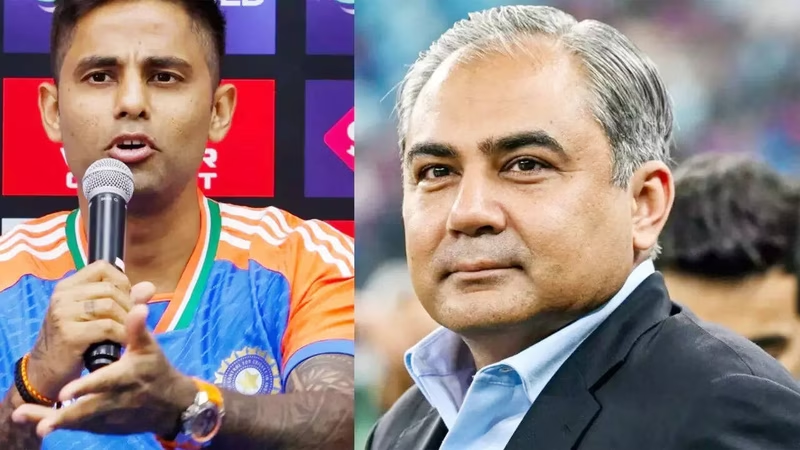Table of Contents
- A Trophy Delayed, But Not Denied
- Asia Cup Trophy Controversy: The Refusal
- Who Is Mohsin Naqvi—and Why Did India Object?
- Suryakumar Yadav’s Emotional Response
- BCCI-PCB Diplomacy Behind the Scenes
- Precedents in Cricket Trophy Disputes
- What Happens to the Trophy Now?
- Conclusion
- Sources
For most champions, lifting the trophy is the ultimate reward—the final, gleaming symbol of hard-fought victory. But for India’s 2023 Asia Cup-winning squad, that moment was delayed by months due to a diplomatic storm. Now, captain Suryakumar Yadav has finally held the coveted silverware, calling it a moment that “feels great.” His simple words carry the weight of a complex political and sporting saga—one that pits cricketing brotherhood against national sentiment in the ever-volatile India-Pakistan relationship. At the heart of it all lies the Asia Cup trophy controversy, a dispute that tested the boundaries of sportsmanship and sovereignty.
A Trophy Delayed, But Not Denied
India clinched the 2023 Asia Cup in Colombo on September 17, defeating Sri Lanka in a rain-shortened final. The on-field celebration was jubilant—but the post-match presentation was notably absent. The Indian team, led by then-captain Rohit Sharma, politely declined to receive the trophy from Mohsin Naqvi, who, as both the PCB (Pakistan Cricket Board) chairman and the Asian Cricket Council (ACC) president, was presiding over the ceremony.
The reason? Naqvi’s public statements and political role in Pakistan, which many in India perceived as hostile toward Indian interests. The BCCI, backed by the Indian government’s stance on cross-border relations, made it clear: accepting the trophy from him would be seen as legitimizing views deemed anti-India.
Asia Cup Trophy Controversy: The Refusal
The refusal wasn’t impulsive—it was strategic. Sources within the BCCI confirmed that the decision was made at the highest levels hours before the final . While players wanted their due recognition, they also understood the symbolic gravity of the moment. “It wasn’t about disrespecting the ACC,” one official said anonymously. “It was about protecting India’s dignity.”
The ACC, keen to avoid escalation, later handed the physical trophy to BCCI representatives in a closed-door setting—but without fanfare or photographs. For months, the trophy remained in storage, untouched by the very men who earned it.
Who Is Mohsin Naqvi—and Why Did India Object?
Mohsin Naqvi, a senior Pakistani politician and media baron, was appointed PCB chairman in early 2023 and soon after elected ACC president—a dual role that raised eyebrows. His past comments on India, particularly during periods of heightened tension (such as the 2019 Pulwama attack aftermath), have been cited in Indian media as inflammatory.
While Naqvi has since called for “cricket beyond politics,” the damage to his image in India was done. The BCCI’s stance reflected a broader policy: Indian teams will not engage in ceremonial acts that could be interpreted as endorsing individuals linked to anti-India rhetoric—even in sporting contexts.
Suryakumar Yadav’s Emotional Response
Fast forward to early 2025, and new T20I captain Suryakumar Yadav—who played a pivotal role in the Asia Cup campaign—finally held the trophy during a private team gathering. “It feels great to finally get to touch the trophy,” he shared, adding, “We worked so hard for it. Every player deserved that moment.”
His statement resonated with fans who had questioned why the heroes of Colombo were denied their ceremonial due. For Surya, a player known for his expressive celebrations, this quiet moment closed an emotional loop. “It’s not just metal—it’s memory,” he said poignantly .
BCCI-PCB Diplomacy Behind the Scenes
Recent developments suggest a thaw. Representatives from the BCCI and PCB met in Dubai in late 2024 to discuss bilateral cricket—and the lingering trophy issue. While full normalization remains distant, both boards agreed on one point: the Asia Cup result and India’s victory must be formally acknowledged without political overtones.
Reports indicate the ACC may issue a “neutral” commemorative plaque to the Indian team, separate from the original presentation. This compromise allows India to honor its win while sidestepping the Naqvi dilemma—a classic example of cricketing diplomacy at work.
Precedents in Cricket Trophy Disputes
This isn’t the first time politics has intruded on cricketing honors:
- 2019 World Cup: India refused to attend a post-final photo with then-ICC chairman Shashank Manohar over administrative disagreements.
- 1999 India-Pakistan series: Trophies were exchanged via officials, not captains, due to Kargil tensions.
- 2008 Mumbai attacks: All bilateral series halted for years; symbolic gestures were avoided entirely.
Yet, the Asia Cup trophy controversy stands out for its blend of protocol, perception, and principle in the social media age.
What Happens to the Trophy Now?
The original Asia Cup 2023 trophy is expected to be displayed at the BCCI headquarters in Mumbai, with plans to tour it during domestic tournaments. Players will receive individual replicas—a standard practice for major ICC/ACC events. But the emotional closure matters more than the hardware.
As one senior Indian cricketer put it: “We didn’t need Naqvi to validate our win. But we did deserve to hold what we earned.”
Conclusion
The Asia Cup trophy controversy underscores a painful truth: in South Asian cricket, sport and state are never fully separate. Yet, Suryakumar Yadav’s heartfelt words—“It feels great to finally get to touch the trophy”—signal a step toward reclaiming joy from politics. While the BCCI and PCB navigate complex diplomatic waters, the players’ legacy remains untarnished. They won on the field. And now, at last, they’ve held the symbol of that triumph in their hands.
